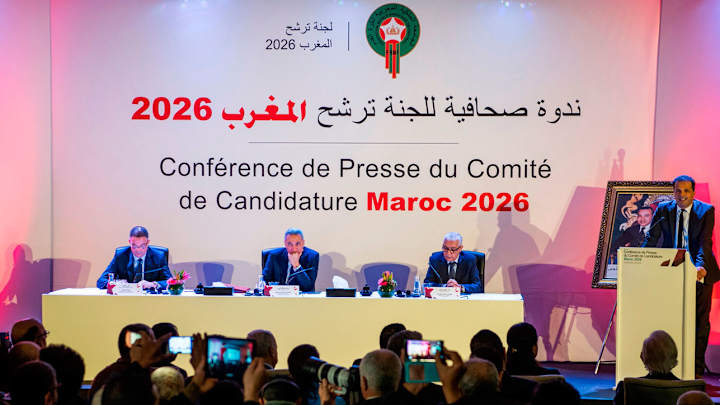FIFA Inspection Yields More Questions About Morocco's 2026 World Cup Bid

CASABLANCA, Morocco (AP) — FIFA’s inspection of Morocco’s 2026 World Cup plans ended with questions about the quality of stadiums and a demand for more details from the bid ahead of a second unexpected examination of infrastructure.
Bid president Moulay Hafid Elalamy acknowledged on Friday that Morocco still has to “improve the quality of our bid book,” which was initially submitted to FIFA a month ago ahead of the June vote against the North American entry. A task force deployed from FIFA HQ in Zurich spent three days surveying stadiums, hotels, training camps, and other World Cup sites in Marrakech, Agadir, Tangier, and Casablanca. But another group of FIFA experts will scrutinize hotel capacity and facilities for VIPs next week, Elalamy said.
FIFA officials “made some remarks on the conditions of some of the stadiums,” Elalamy said. “We are currently negotiating with FIFA to find a solution.”
While Morocco has said it needs to spend almost $16 billion on infrastructure for the 48-team World Cup, including building or renovating all 14 stadiums, the rival North American bid does not require any tournament-specific building work. FIFA has also not said it plans a second inspection of facilities in the United States, Canada, and Mexico as it will now conduct in Morocco.
“The task force visit allowed Morocco’s bid committee to understand certain FIFA requirements that we will address with a lot more precision in the upcoming days,” Elalamy said.
Elalamy did not specify the additional information required, taking no questions at an event initially billed as a news conference in Casablanca. The start of the inspection coincided with The Associated Press revealing Morocco did not declare its anti-LGBT law to FIFA in the human rights risk assessment submitted in its bid.
Ahmed El Haij, president of the Moroccan Association for Human Rights, told the Associated Press neglecting this represented “an intentional silence” by the bid. FIFA has declined to comment specifically on the AP’s findings because the bidding process is ongoing ahead of the June 13 vote by up to 207 member associations.
But tensions have boiled over in public between FIFA and Morocco, which complained about the demands for technical criteria that the bids will be scored on. A bid with a low mark could be blocked by the FIFA Council from going forward to the vote by the congress.
“Communication between Morocco and FIFA was very weak, extremely limited,” Elalamy said. “Now, we have adopted an open dialogue so that we can improve the quality of our bid book.”
